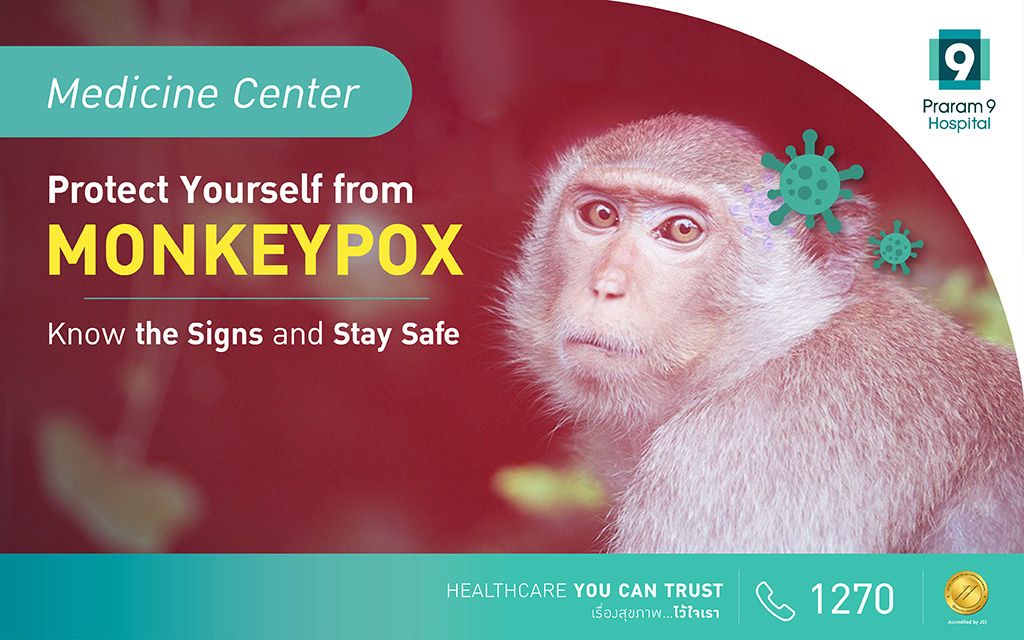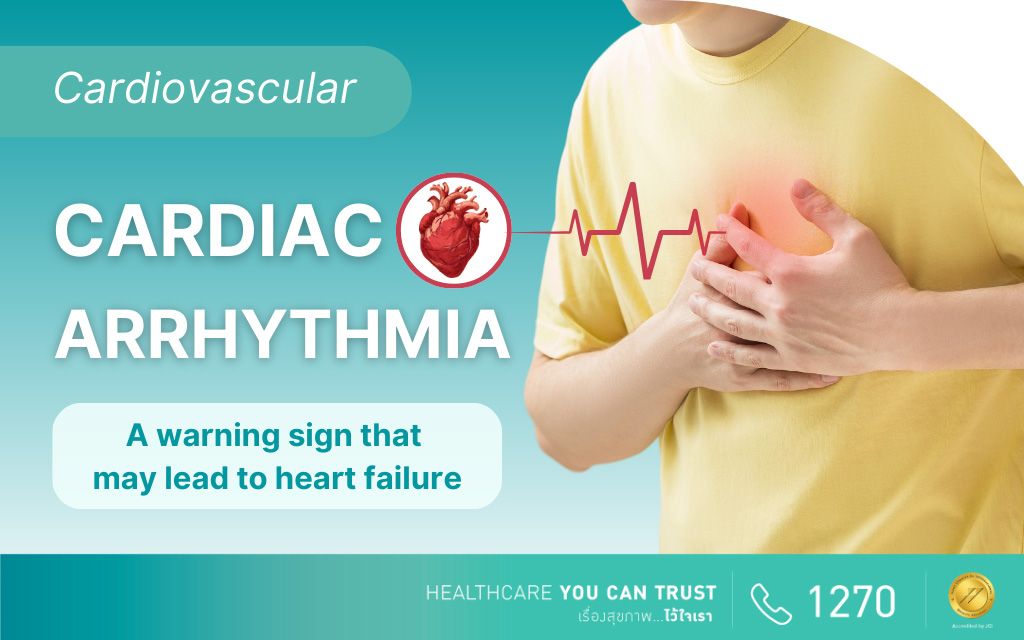Health Articles
Knowledge
Stress Management during the Covid-19 Pandemic
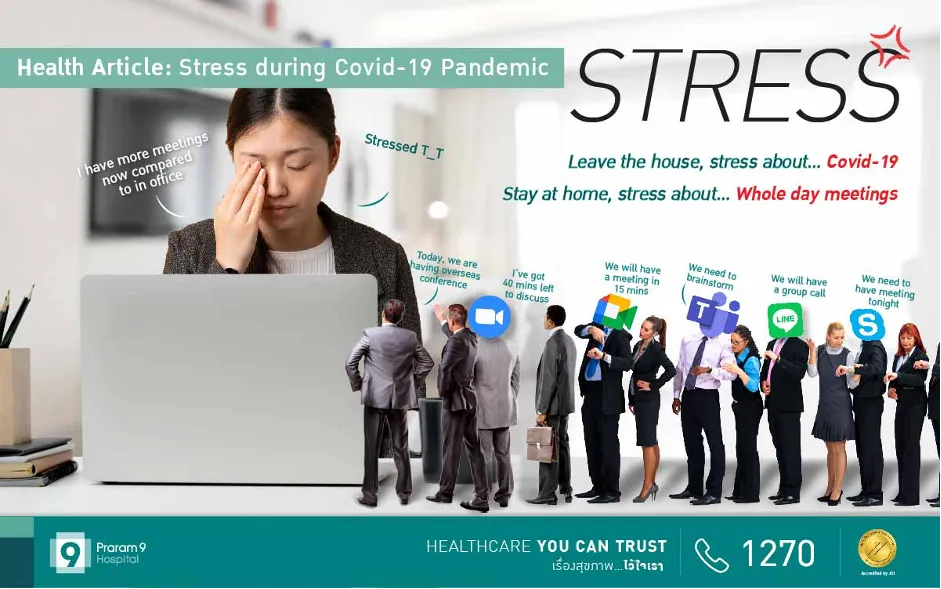
Stress Management during the Covid-19 Pandemic
Dr. Dujrudee Apiwong
The Covid-19 pandemic has had a major effect on our lives. Many of us, both adults and children, are facing challenges that can be stressful and overwhelming. Learning to cope with stress in a healthy way will allow you, the people you care about, and those around you become more resilient.
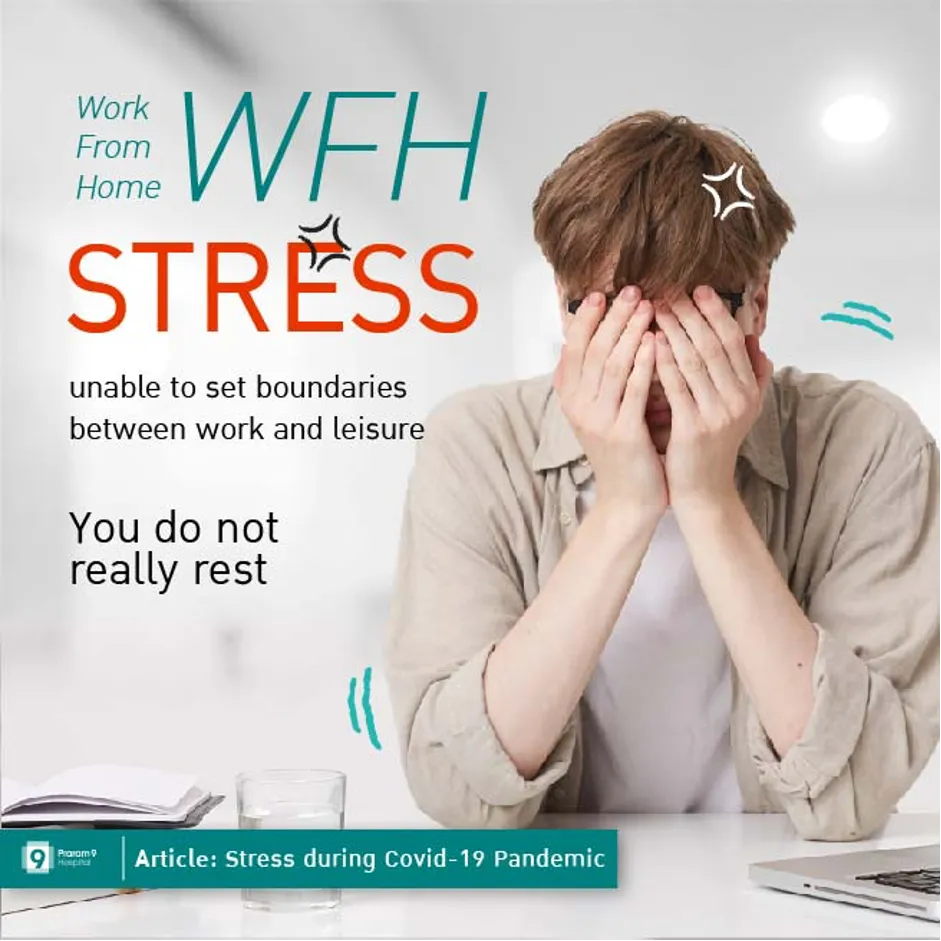
Contents
- How Covid-19 affects the mental health
- Introduction to stress
- 3 Impacts of stress
- Depression
- Strategies to manage stress
- Sustainable stress management techniques during covid-19 pandemics
- Summary
How covid-19 affects the mental health
We may be aware of the infectiousness, morbidity and mortality of Covid-19, but it is also known to have significant negative mental impact on those involved directly or indirectly.
For patients diagnosed with Covid-19, these are some of the emotional stress they may face:
- Guilt after testing positive as well as anxiety about spreading the illness to others
- Stress after being isolated.
- Anxiety and worry due to uncertainty about treatment and complications from infection.
Impact of COVID-19 on Public Mental Health
People may also be stressed despite not being infected by Covid-19 due to several reasons:
- From the news to social media, a lot of information is circulating about the coronavirus. Some is true, but much of it may be misinformed or only partly correct, especially as information rapidly changes. The inability to understand and misinformation can lead to stress and anxiety.
- Income insecurity and fear of losing jobs.
- Social isolation whether from quarantine or city lockdown.
- Stress of working from home due to difficulty setting boundaries between work and family

- Exhaustion from ineffective telecommunication
- Stress from parenting during school closure and remote online learning for children.
Introduction to stress
What is stress?
Stress is our physiological and psychological response towards change in our life, whether it is just daily change or impactful, unexpected change.

Moderate doses of stress are beneficial to health. Humans have a flight-or-fight response, which is an inborn physiological reaction that occurs when they perceive threat. Stress improves your cognitive function, helping you to fight obstacles, including the Covid-19 pandemic difficulties.
3 Impacts of stress
- Physical impact:
- Hypertension
- Increases stomach acidity levels
- Lowers immune response
- Exacerbation of chronic disease
2. Psychological impact
- Poor mood, possibly leading to depression
- Poor concentration
- Mood instability
- Decreased cognitive function
3. Behavioral impact
- Drug abuse
- Gambling addiction
- Binge eating
Depression
Depression is another significant negative effect resulting from the Covid-19 pandemic. Here are some symptoms of depression:
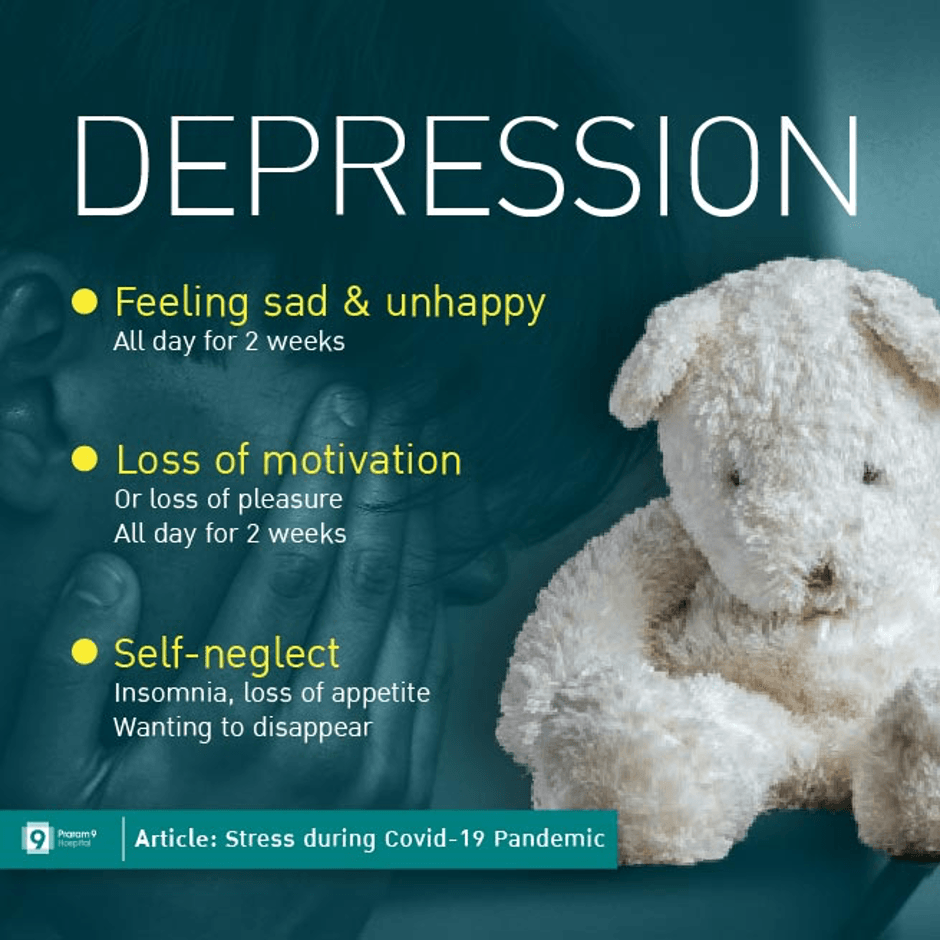
- Sadness or depressed mood most of the day or almost every day for at least 2 weeks
- Loss of enjoyment in things that were once pleasurable for at least 2 weeks
- Concentration problems.
- Strong feelings of worthlessness or guilt.
- Having suicidal thoughts or thoughts of harming yourself
- Disturbed sleep – for example, finding it difficult to fall asleep at night or waking up very early in the morning
- Changes in appetite or weight (usually decreased, but sometimes increased)
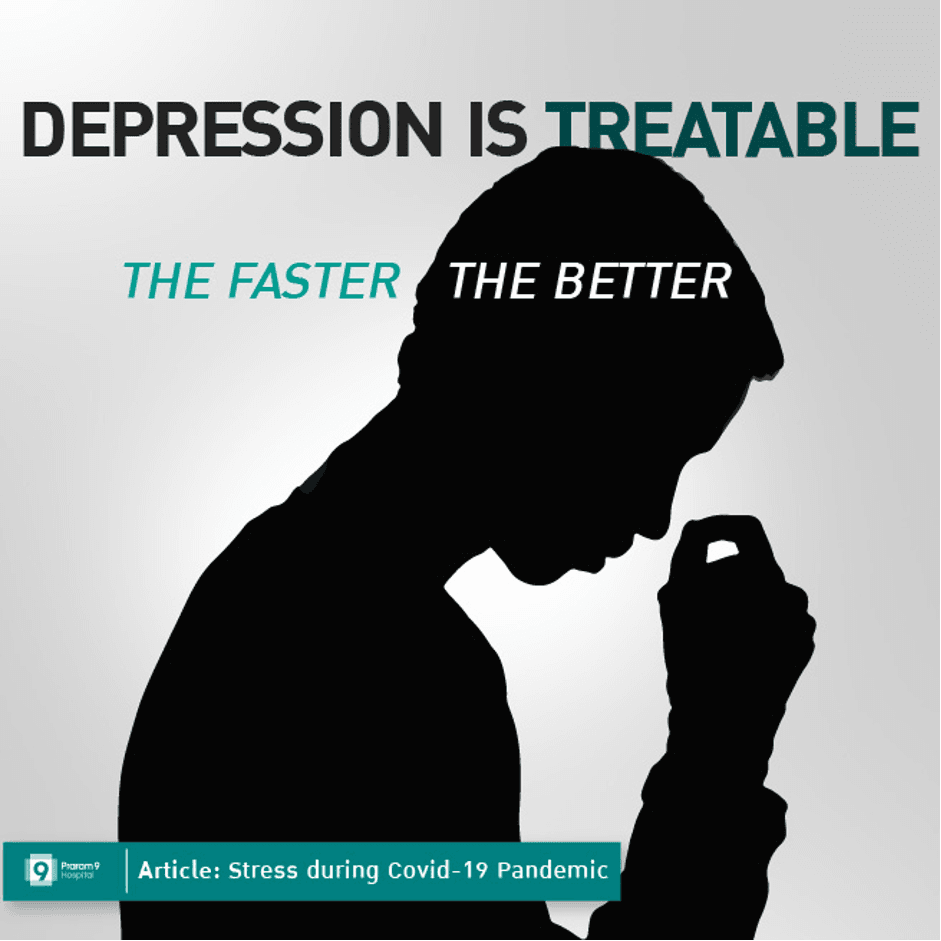
See a psychiatrist if you experience symptoms of depression for most of the day, every day, for more than 2 weeks. Moreover, during times of extreme stress, people may have thoughts of suicide. Suicide is preventable and our psychiatrists at mind center are always available for help.
Strategies to manage stress
Managing stress is all about taking charge: taking charge of your thoughts, your emotions, your schedule, your environment, and the way you deal with problems. The ultimate goal is a balanced life, with time for work, relationships, relaxation, and fun – plus the resilience to hold up under pressure and meet challenges head on. Below are fundamental steps to manage stress.
- Building emotional awareness
- Identify the sources of stress
- Avoid unnecessary stress
- Alter the situation and adapt to the stressors
- Accept the things you can’t change
- Relax and recharge. Listed below are some examples of simple relaxation techniques.
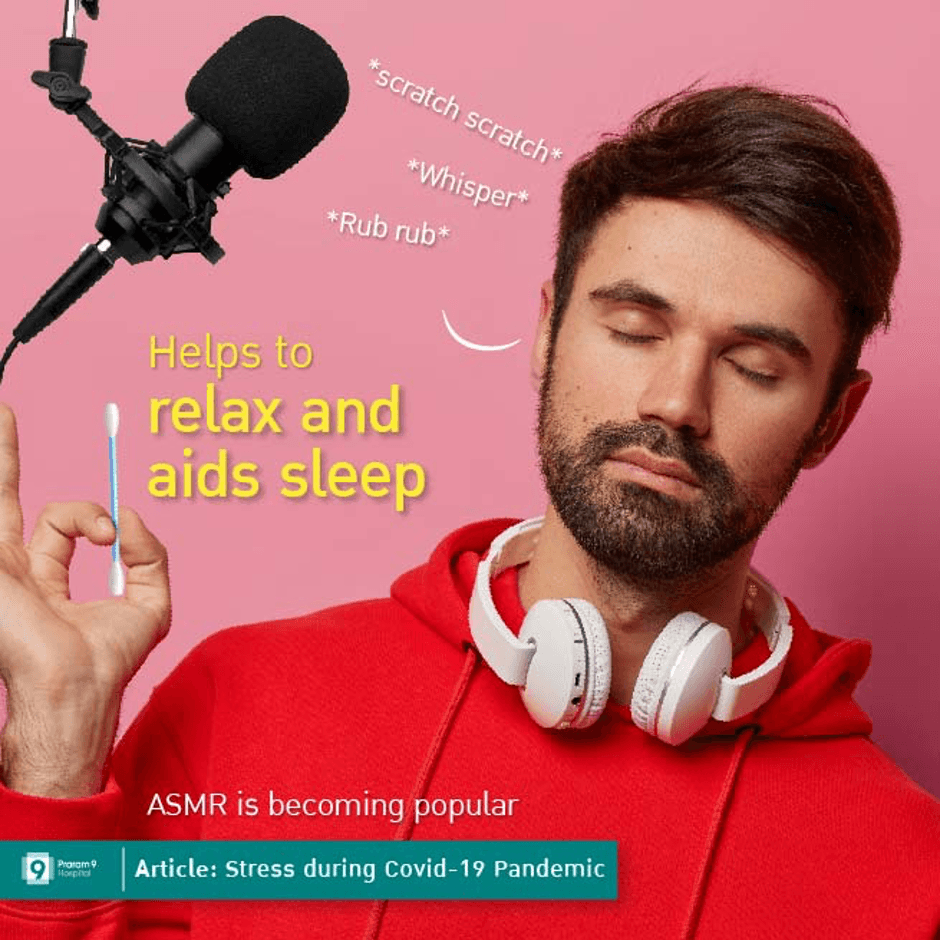
- Exercise stimulates your body to release a number of hormones like endorphins and endocannabinoids that help block pain, improve sleep, and promote relaxation. Some of them (endocannabinoids) may be responsible for the euphoric feeling, or “runner’s high,” that some people report after long runs.
- Music can have a profound effect on both the emotions and the body. Slower tempo music can quiet your mind and relax your muscles, making you feel soothed while releasing the stress of the day. Music is effective for relaxation and stress management.
- ASMR (autonomous sensory meridian response) is a novel technique to relieve stress. It is a perceptual sensory phenomenon, likened to meditation, which encompasses a pleasant and calming “tingling” sensation localized to the scalp and neck in those able to experience it. These sensations are triggered by specific auditory and visual stimuli such as whispering or personal attention. People looking to experience ASMR may turn to video streaming sites. These videos are generally watched by users in a quiet environment to achieve the relaxing effect of ASMR.
- Better sleep habits can help. This includes: exercise regularly, get out in the sunlight, drink less alcohol and caffeine close to bedtime, set a sleep schedule, and reduce the use of electronics devices at least 60 minutes before bed.
- Spend time with a friend or family member who will listen to you. It is a natural way to calm you and lower your stress. When you connect with people in person, your body releases a hormone that stops your fight-or-flight response, allowing you to relax
- Relaxation exercises such as yoga, meditation and deep breathing may help as well
Sustainable stress management techniques during covid-19 pandemics
Learning to cope with stress in a healthy way will make you, the people you care about, and those around you become more resilient. After all, we need to adapt to “the New Normal” life post Covid-19.
- Take breaks from watching, reading, or listening to news stories, including those on social media. It’s good to be informed, but hearing about the pandemic constantly can be upsetting. Consider limiting your news uptake to just a couple times a day.
- Set aside some time to unwind. Try to do some other activities you enjoy. Having more time at home can be an excellent opportunity to work on different types of hobbies. Picking up new or old hobbies can bring joy and enrich our lives.
- Stay optimistic. Try to focus more on the little things from the Covid-19 pandemic that make us happy such as more time with family, less traffic jams, more time for hobbies, more opportunities for rest and relaxation.
- Stay connected. Use phones, computers and the post to stay in touch. Hearing a friendly, familiar voice, or reading a message from people we care about, helps us feel more connected. This is important for our mental health, especially for people living alone, who may be feeling lonely, isolated and afraid.

Summary
COVID-19 has affected our daily life tremendously. Learning to cope with stress and adapting to our “New Normal” life post covid-19 is important.
Learning to manage stress will make you more resilient. However, if you are struggling to cope, there are many ways to get help. Contact our mind center if you find that you are struggling and we will be there to help you, offering personalized and novel treatment methods that suit your needs.
About the Author





